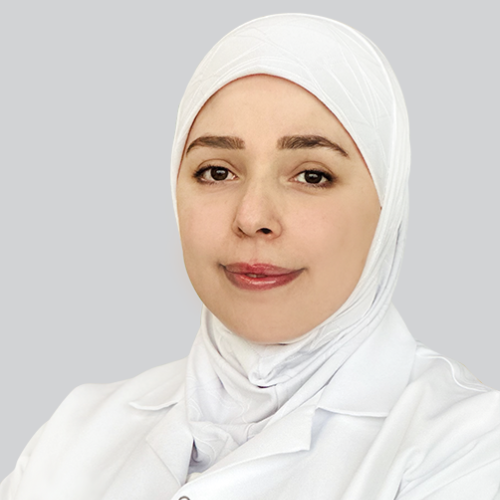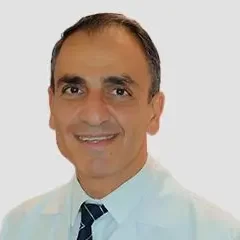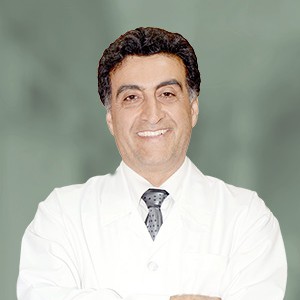
Samah Alasrawi
International Modern Hospital
Dr. Samah Alasrawi specializes in surgical care for infants, children, and adolescents.

Dani Hanna
Canadian Specialist Hospital
Dr. Dani Hanna offers expert treatment for congenital anomalies and pediatric injuries.

Hamidreza Foroutan
Iranian Hospital
Dr. Hamidreza Foroutan brings extensive pediatric surgery experience to ensure the best outcomes.
The Silent Guardians of Childhood: Pediatric Surgeons
In the delicate balance between hope and despair, pediatric surgeons work. Their hands hold not just scalpels, but the fragile potential of young lives.
The Road Less Traveled
The journey to pediatric surgery is long and winding. It starts with general medical training, where the seeds of ambition are planted. Years of specialized training follow, honing skills to a fine point. Each step is marked by an unwavering focus on the unique needs of children.
The Symphony of Signals
A child’s body speaks in subtle, complex signals. Symptoms can be elusive, hidden behind a child’s smile or tears. Detecting these requires intuition and finely tuned observation. Understanding the whispers of young bodies becomes second nature.
The Complexity of Surgery
Pediatric surgery is not merely a scaled-down version of adult procedures. It is a distinct art form, dealing with varying anatomy and the challenges of growth. Procedures range from congenital malformations to trauma surgery. Precision is key, as tiny margins leave no room for error.
Cultural Sensitivity in Pediatric Care
In global hubs like Dubai, cultural dynamics profoundly impact pediatric care. Understanding the diverse cultural backgrounds of patients ensures respectful and effective treatment. Surgeons adapt their approaches accordingly, weaving cultural sensitivity into their practice.
Emotional Layers
The emotional stakes in pediatric surgery are profound. Parents swirling in a storm of emotions—fear, hope, anxiety. The surgeon’s role extends beyond the operating room, offering reassurance and empathy. Each interaction calls for genuine emotional engagement, layered with professional detachment.
The Role of Technology
Modern technology is intertwined with pediatric surgery. From advanced imaging techniques to robotic-assisted procedures, technology enhances precision and outcomes. But it’s always the surgeon’s skill and judgment guiding these tools, integrating technology with human expertise.
Navigating Pediatric Oncology
Cancer in children presents unique challenges. Pediatric oncologists and surgeons work closely, tailoring treatments to each child’s needs. Every surgery is a heavy emotional and technical burden, requiring meticulous planning and execution. Collaboration is essential for successful outcomes.
The Weight of Precision
Each decision in pediatric surgery is a weighted choice. Selecting the right incision, considering growth impacts, planning postoperative care. Each factor influences the child’s recovery and future. Precision and foresight guide every surgical decision.
Pediatric Recovery Process
The recovery process in pediatric surgery is multifaceted. Pain management, physical therapy, and psychological support are intertwined. Ensuring comfort and promoting healing require an integrated approach, addressing physical and emotional dimensions.
Multidisciplinary Collaboration
Pediatric surgeons do not work in isolation. They rely on a network of specialists, including anesthesiologists, radiologists, and pediatric nurses. Multidisciplinary collaboration fosters a comprehensive treatment environment, enhancing patient care.
Addressing Congenital Anomalies
Congenital anomalies, present from birth, often require immediate and complex interventions. Conditions like congenital heart defects or cleft palate demand early and precise surgical correction. These cases require specialized skills and a deep understanding of pediatric physiology.
Chronic Conditions in Pediatric Surgery
Chronic conditions, such as cystic fibrosis or congenital diaphragmatic hernia, present ongoing challenges. Managing these conditions involves regular assessments and sometimes repeat surgeries. Long-term care strategies are crucial for improving quality of life.
The Emotional Toll
The emotional toll on pediatric surgeons is significant. The burden of young lives, the hope of parents—it weighs heavily. Moments of success bring deep relief, while setbacks can be profoundly discouraging. Mental resilience and peer support are vital in navigating this emotional landscape.
Educating and Empowering
Education is a cornerstone of their role. Educating parents about postoperative care, dietary needs, and long-term health impacts is crucial. Empowering families with knowledge fosters a proactive approach to their child’s health.
Reflecting in Silence
In the rare quiet moments, reflection is inevitable. Contemplating past cases, considering future improvements. These moments of introspection lead to personal and professional growth, enhancing future patient care.
Commitment Beyond Surgery
To be a pediatric surgeon is a commitment extending beyond the operating room. It’s about advocating for children’s health, participating in community education, and pushing for advancements in medical practice. It’s a lifelong dedication to the delicate task of healing the youngest, most vulnerable patients.
The Fragile Balance
Balancing clinical detachment with emotional engagement is a daily challenge. Building trust with young patients, offering comfort to anxious parents. It underscores the human essence of pediatric surgery, blending skill with empathy, science with heart.
Enduring Hope
Above all, hope is the constant companion of a pediatric surgeon. Amid the complexity and challenges, the hope of a healthier future for each child drives their tireless efforts. It’s an intricate dance with uncertainty, yet every small victory is a beacon of hope.
Pathologist
Would you also like to access information about Pathology? Pathology is the branch of medicine that focuses on the study and diagnosis of diseases through the examination of tissues, cells, and bodily fluids, playing a critical role in understanding the causes and progression of diseases, guiding treatment decisions, and contributing to patient care.
Pathologist